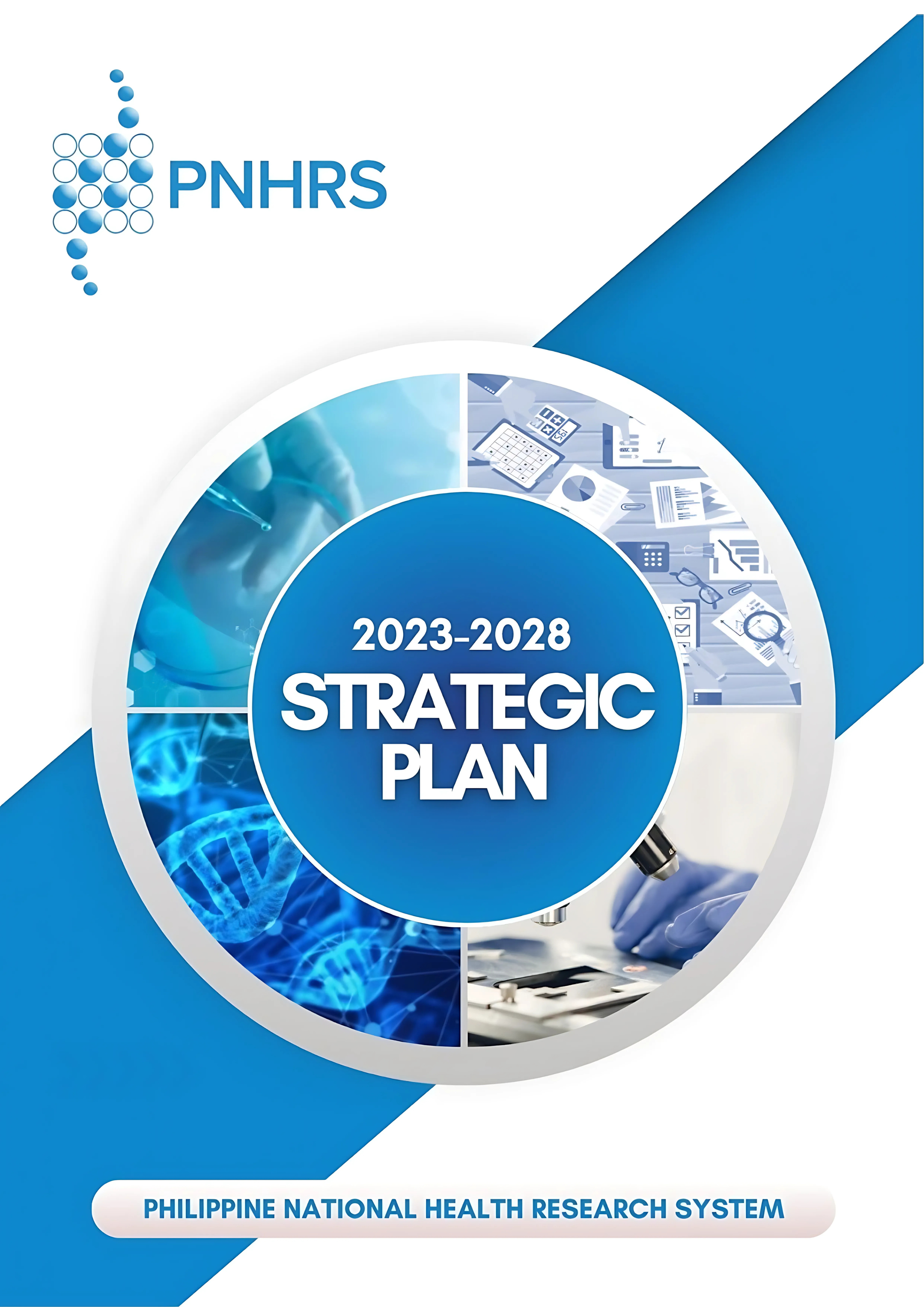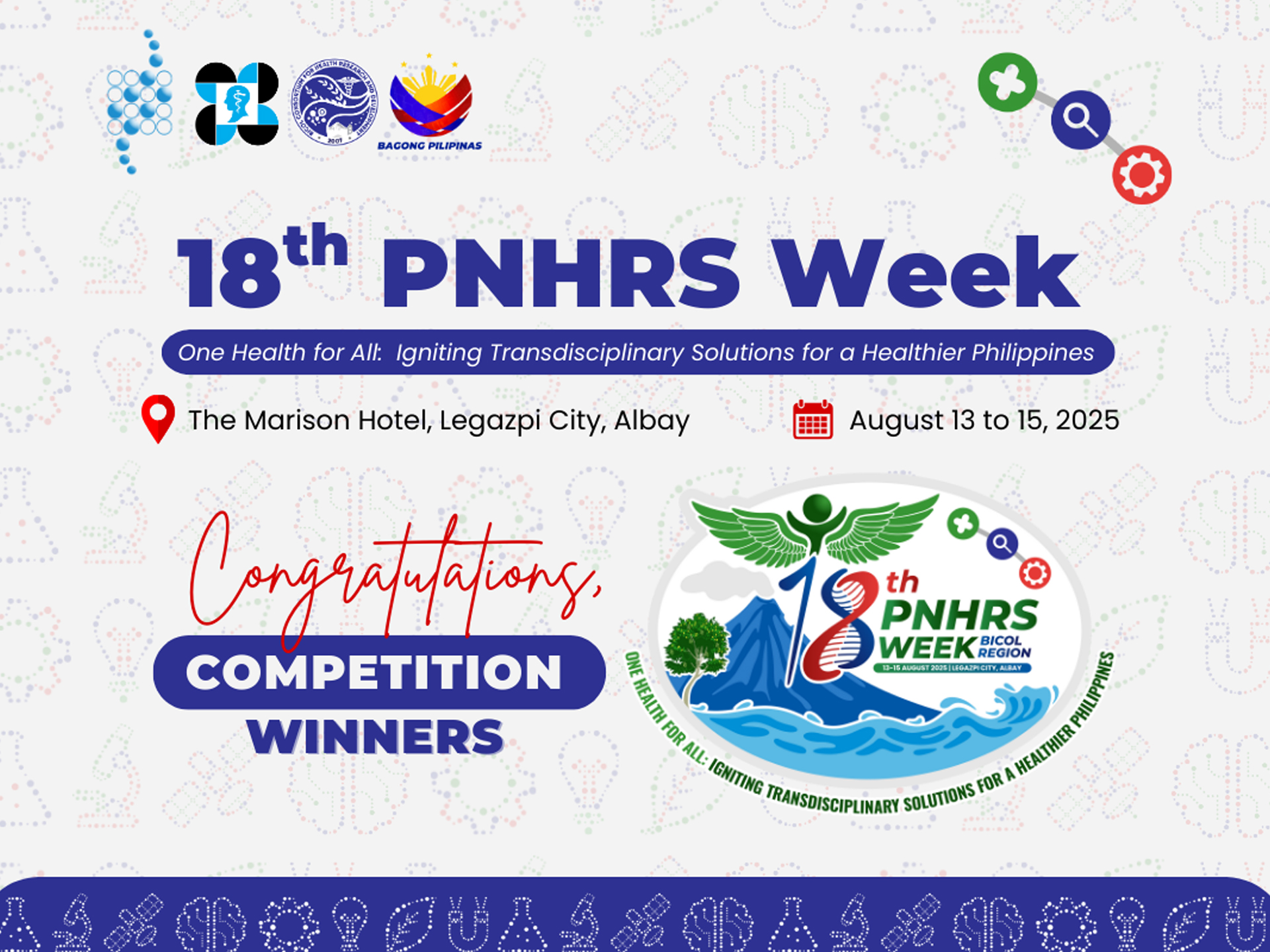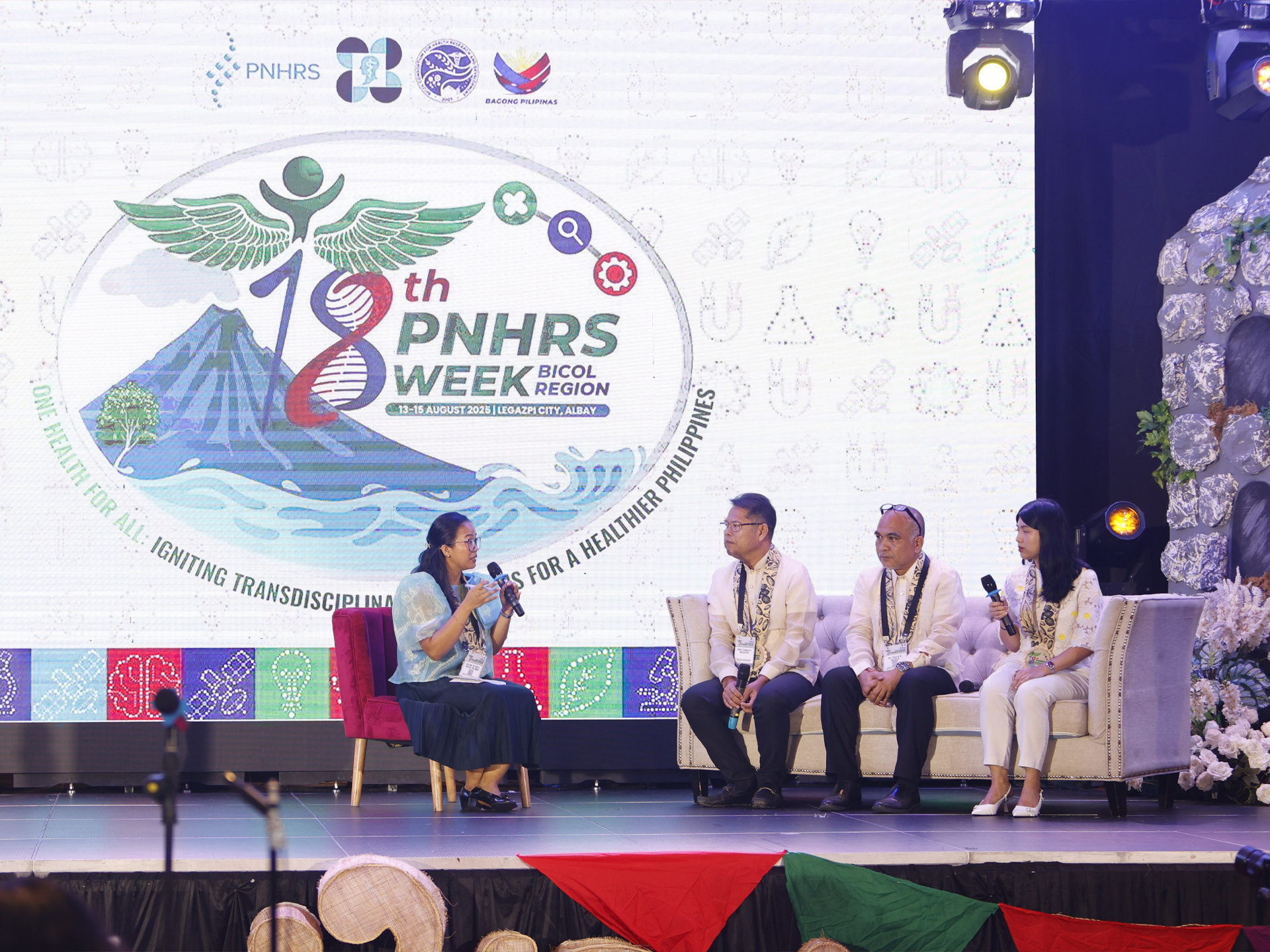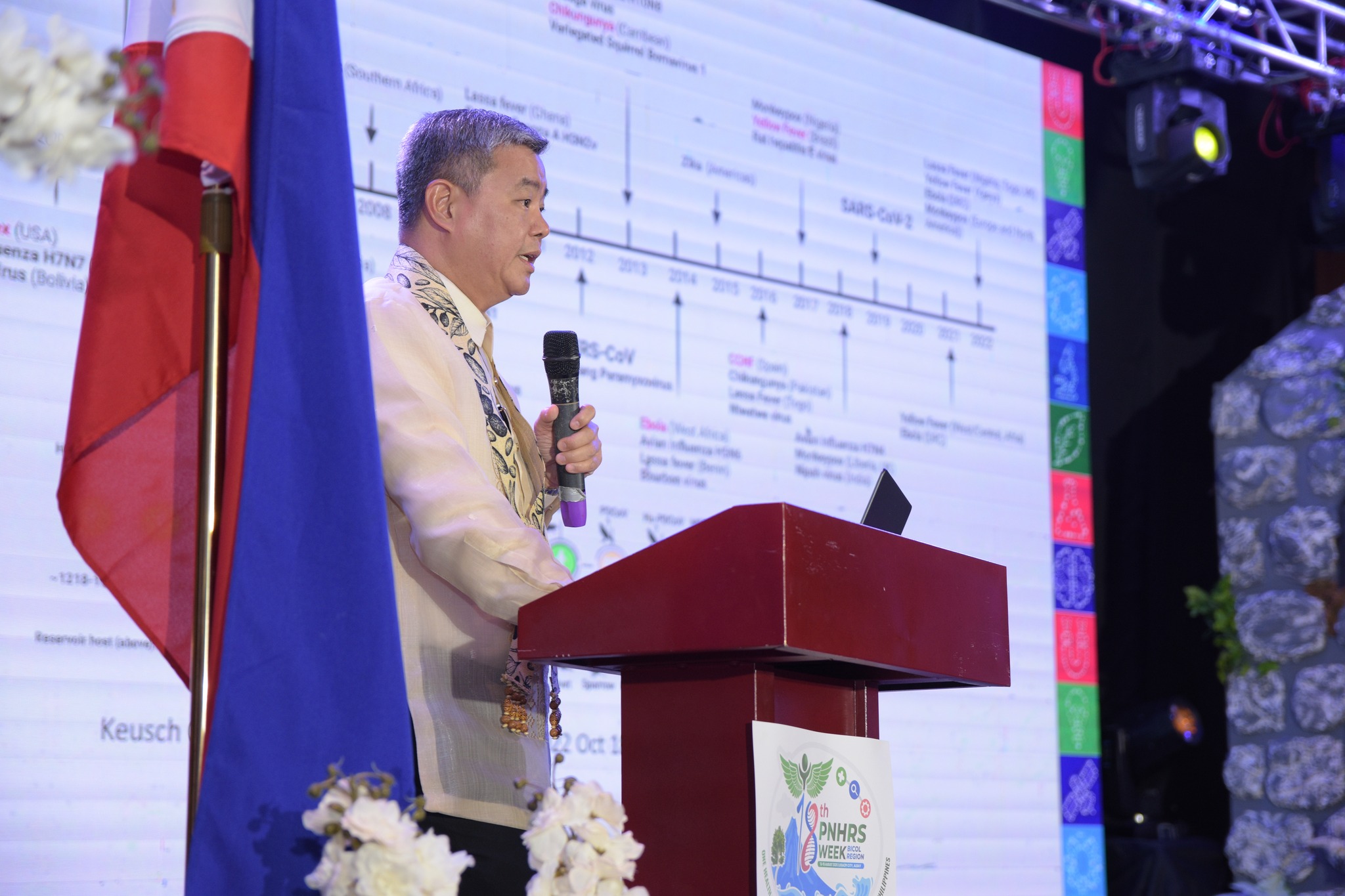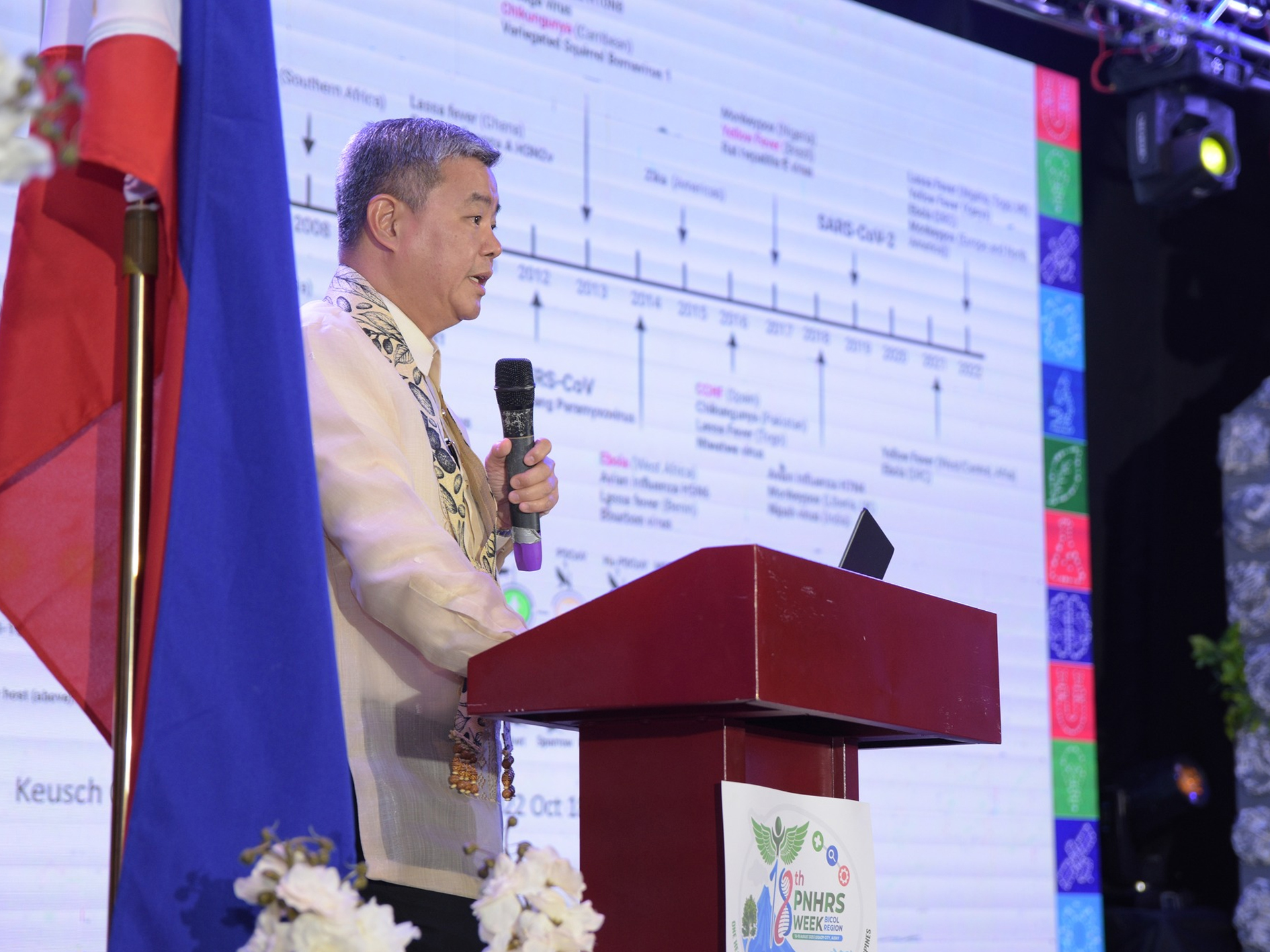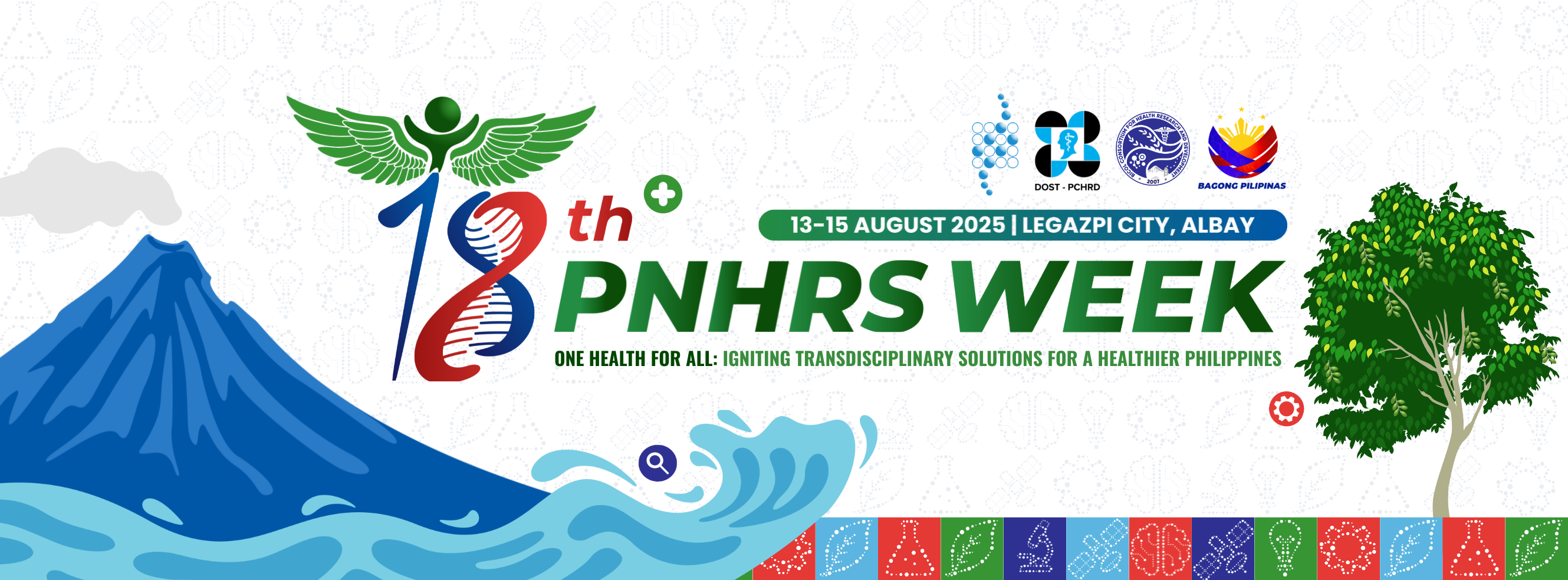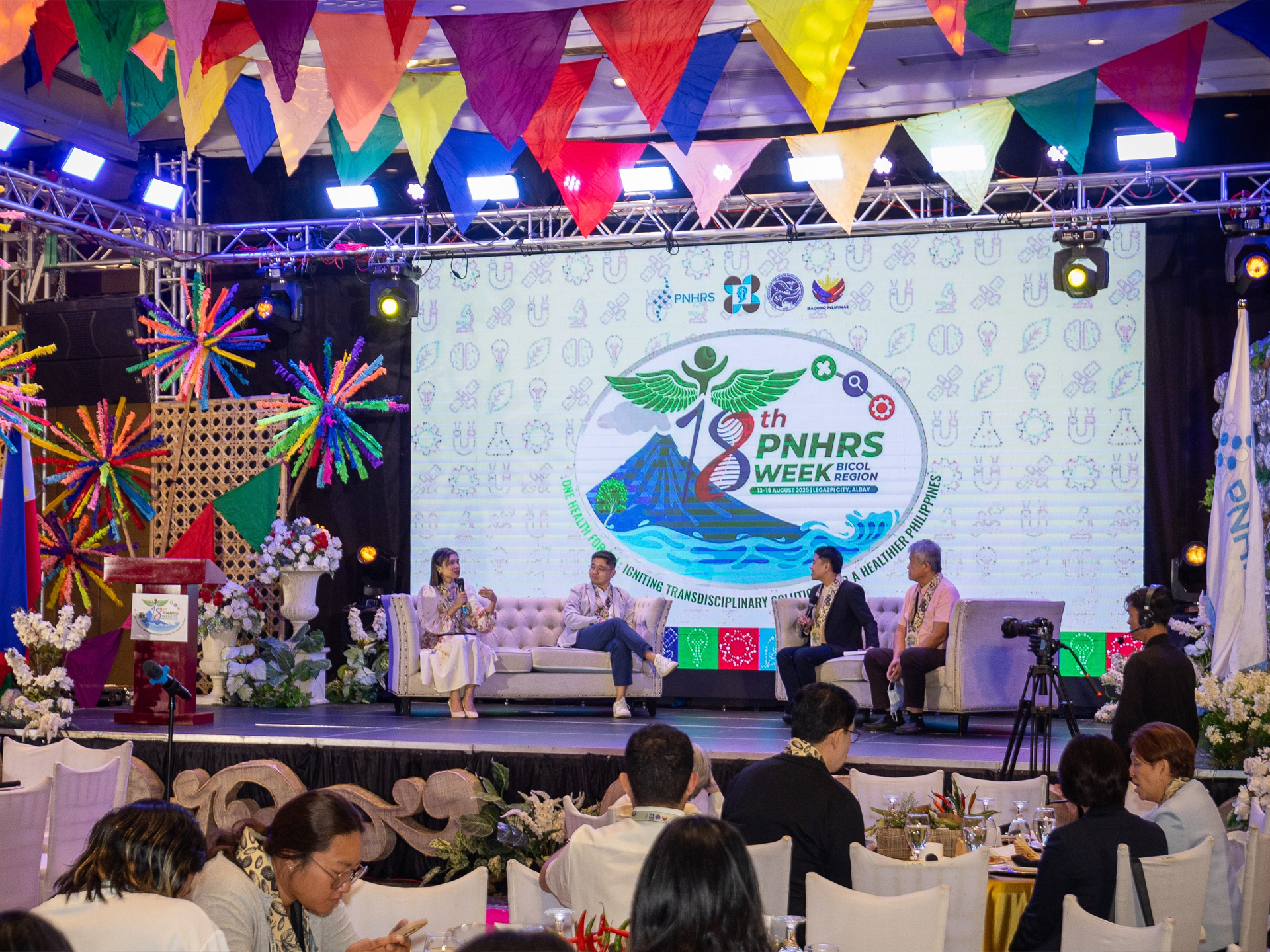
“People are central drivers of One Health,” was a recurring theme highlighted during the Plenary Session 2 entitled, “Innovation, Education and Governance Integration in One Health” at the 18th Philippine National Health Research System (PNHRS) Week celebration held on 15 August 2025 in Legazpi City, Albay.
The PNHRS celebration featured engaging discussions on the One Health approach, aligning with the event’s theme, “One Health for All: Igniting Transdisciplinary Solutions for a Healthier Philippines.” One Health emphasizes the interconnectedness of human, animal, and environmental health, and the need for collaborative efforts to ensure the well-being of all three components.
In the second Plenary Session, speakers tackled technology and data, community resilience, and strategies for community health as key initiatives to advance One Health for all.
People in Technology and Data for One Health
Encouraging collaborative innovation, Dr. Apple Charm Agulto, Founder of Synaptech Solutions and Consultant at the Field Epidemiology Training Program Alumni Foundation, Inc. (FETPAFI), discussed how technology and data can be leveraged to develop One Health solutions.
In her talk, Dr. Agulto emphasized that the process of creating health solutions must be people-centered to improve outcomes and address possible limitations of technology. Including people in the process ensures that solutionsrespond to actual health needs. “When we involve the stakeholders from the start, we create data systems that not only function better but also earn the trust needed for sustainable use,” she said.
She also underscored the importance of ethical governance, ensuring that data protection policies are in place and community rights are upheld.
In closing, Dr. Agulto stressed that health initiatives should lead to tangible impacts. “Translate complex data into compelling narratives that inspire action, influence policies, and mobilize communities,” she said.
Community Resilience in Health Crises
Dr. Miguel Manuel Dorotan, a Senior Health Manager at Economist Impact in Singapore, highlighted the importance of empowering communities to build resilience in the face of crises.
According to Dr. Dorotan, resilience must be built from the ground up through empowerment and education. Each community faces unique vulnerabilities, and in times of health crises, they serve as the first line of response, highlighting the need to strengthen local capacity.
To equip communities with knowledge and skills for prevention, mitigation, and preparedness, Dr. Dorotan proposed two key strategies: public health literacy and emergency response training.
“If you don’t know who or what is your enemy, you don’t know how to fight it or how to prevent it from happening,” he said, emphasizing the need to educate communities on disease risks, modes of transmissions, and prevention strategies. He added that education must go beyond knowledge and be translated into practical skills.
In his call to action, Dr. Dorotan urged stakeholders to engage, co-create, and invest in people to make health resilience efforts truly effective.
Community Involvement in Integrated Health Strategies
Providing a concreteexample of community-centered initiatives aligned with One Health principles, Dr. Isidro Sia, Executive Director of the Integrative Medicine for Alternative Healthcare Systems (INAM) Philippines, shared the activities of the INAM’s Gamutang Pilipino program.
Championing integrated medicine, Gamutang Pilipino works closely with traditional, complementary, and integrative medicine (TCIM) practitioners in empowering communities to lead and participate in local health initiatives.
“Ang sustenableng pagpapaunlad ng kalusugan ay makakamit sa mahigpit na kolaborasyon ng mga mamamayan ay komunidad, ng mga manggagamot, ng mga mananaliksik at akademya, ng makabayang industriya, ng civil society, at ng pamahalaan (Sustainable progress in health can be attained through the close collaboration between members of the community, health practitioners, researchers and the academe, the industry, civil society, and the government),” said Dr. Sia, citing the guiding principles of the Gamutang Pilipino program.
He further emphasized the program’s foundational belief in the interconnectedness of environmental health and human health, and the value of integrating traditional practices with modern health systems.
With diverse strategies and perspectives, Dr. Agulto, Dr. Dorotan, and Dr. Sia collectively underscored the importance of collaboration and participation across all sectors of the society in building systems that embody the One Health approach.
To watch a replay of the plenary session, visit: https://bit.ly/18thPNHRS_Plenary2.
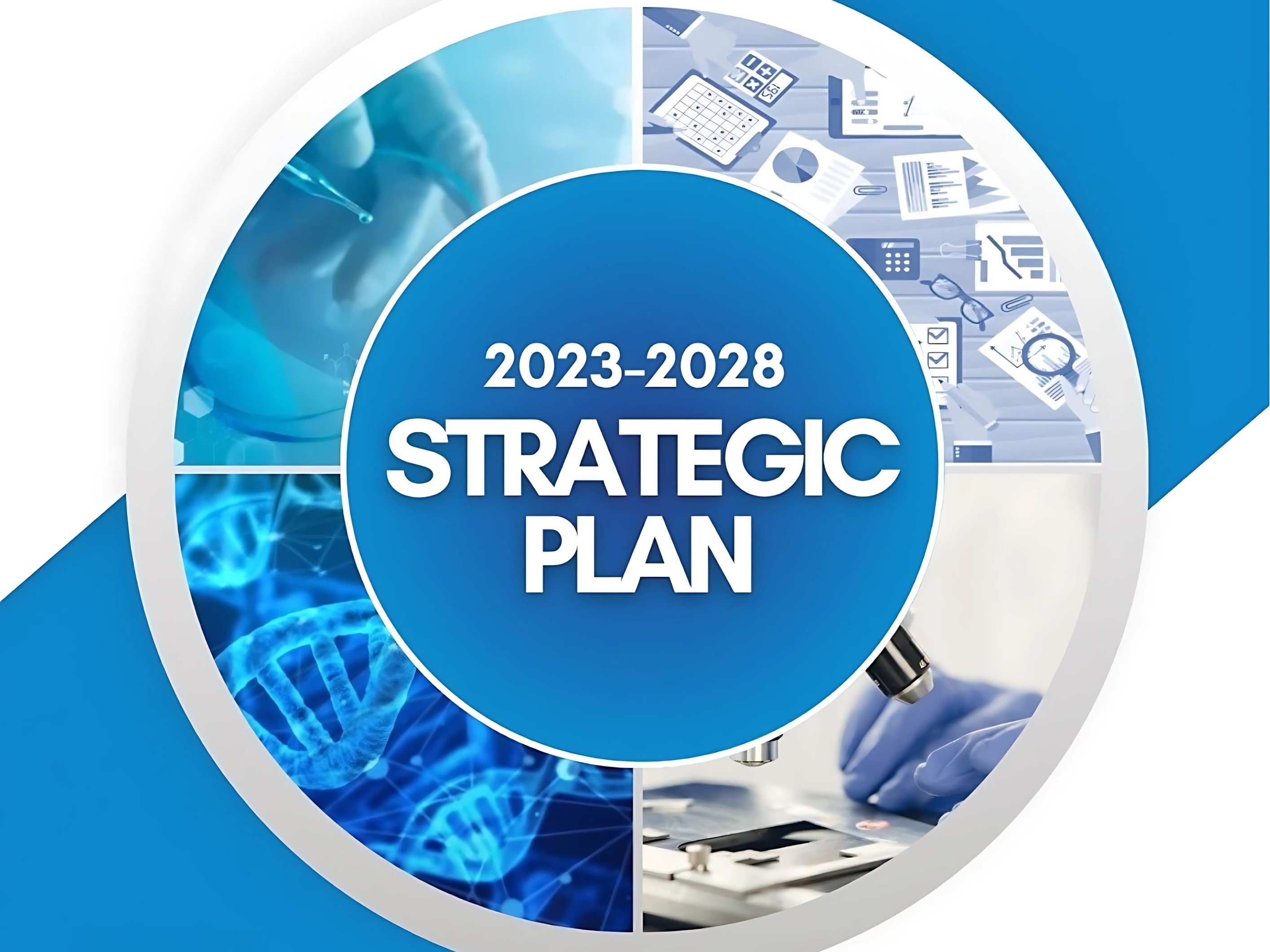 The Philippine National Health Research System (PNHRS) launched its Strategic Plan for 2023–2028 during the opening of the 18th PNHRS Week Celebration on August 13, 2025, at the Marison Hotel in Legazpi City. The event brought together PNHRS leaders, Technical Working Committees, Regional Consortia, partner institutions, and researchers.
The Philippine National Health Research System (PNHRS) launched its Strategic Plan for 2023–2028 during the opening of the 18th PNHRS Week Celebration on August 13, 2025, at the Marison Hotel in Legazpi City. The event brought together PNHRS leaders, Technical Working Committees, Regional Consortia, partner institutions, and researchers.